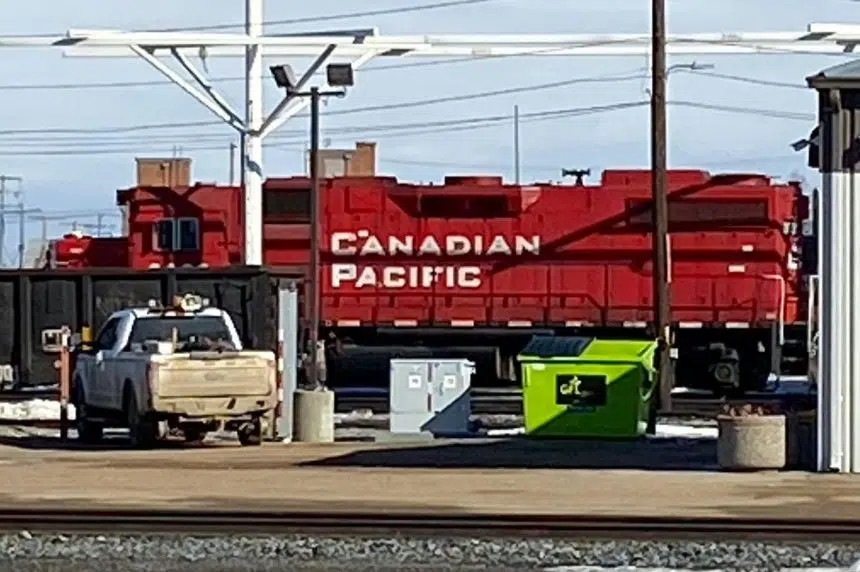A Canadian economist says the work stoppage at Canadian Pacific Railway is an example of what happens when companies and labour groups have too much power.
Fears of supply-chain issues are growing across Canada after 3,000 conductors, engineers and train and yard workers went off the job over the weekend.
Catherine Swift, president of the Coalition of Concerned Manufacturers and Businesses of Canada, says the timing is no accident.
“(It’s) horrible timing, but of course that is why the union is doing this now,” she said on the Roy Green Show on Saturday.
“(Unions) love to choose the most horrible timing possible because it gives them maximum leverage. They always say they care about working people. No, they don’t. They care about their own pockets.”
Industry leaders and politicians including Premier Scott Moe have called on the federal government to table back-to-work legislation to get trains moving again.
Federal Labour Minister Seamus O’Regan said Sunday that Ottawa won’t get involved while the union and the rail company remain at the bargaining table.
Swift says this labour dispute is part of a bigger issue in Canada of companies and unions having too much influence over the economy.
“When you’ve got these quasi-monopolistic markets, which is basically what we’ve got in the rail industry, there has to be a better way,” she said.
“Whether it’s declared an essential service, this is not an industry that should have the classic unionized structure.”
While Ottawa is choosing not to intervene right now, Swift believes many sectors can’t afford to wait for an agreement to be reached.
“We already know our supply chains are in big trouble. We’ve got inflation up the yin yang. Of course inflation is in part of our supply chains being in big trouble,” she said.
“The agriculture sector is naturally looking at its seeding season coming up. Fertilizer is a key thing they need and this is going to be affected.”
The impact in Saskatchewan
It couldn’t happen at a worse time.
That’s the message from Dr. James Nolan, a professor in the College of Agriculture at the University of Saskatchewan.
“It is a terrible time of year for everybody to be having a strike,” he told Gormley on Monday. “That’s why I think the government’s going to move on this pretty quickly.”
Different sectors around Saskatchewan are bracing to be hit hard every day of the work stoppage.
Issues resulting from COVID, along with a typical Canadian winter, created a backlog for rail companies to deal with.
Now, Nolan says the issue is only enhancing this problem, escalating it to new heights.
“My sources on the ground tell me things are terrible right now; there’s just a huge backlog,” he said. “CP is going to have a worse backlog than before because of the strike if it lasts longer than a few days.”
As for how soon the federal government would step in if an agreement can’t be reached, Nolan thinks it would happen sooner than people think.
“I don’t believe it’s going to last longer than a week,” he said. “I don’t think it would last longer than a week because the government will come in and put everything back into order because they’re going to want agrifood stuff moving.”
With CP’s backlog expected to continue for the immediate future, Nolan anticipates this opening the door for other rail companies like the Canadian National Railway (CN) to start addressing the problem.
“CN will more have more access to port positions because CP is not there,” Nolan added. “If I was CN, I would want to take advantage of that.”
— With files from 650 CKOM’s Brent Bosker and 980 CJME’s Logan Stein







